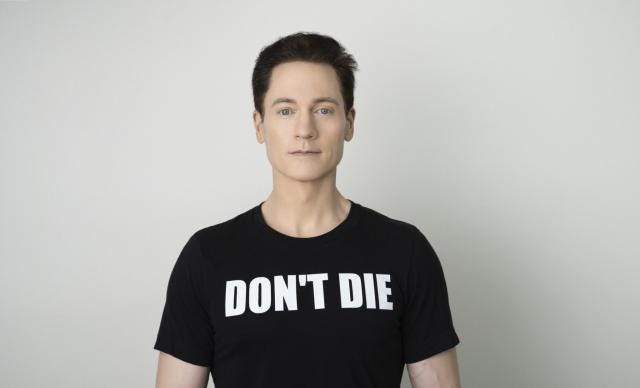What's Wrong With Bryan Johnson
Death isn't the problem. Living in fear of death is.
In my essay “Barbie’s Irrepressible Thoughts of Death”, I used this quote from psychiatrist Ronald Laing: “Life is a sexually transmitted disease and the mortality rate is one hundred percent.” Our painful consciousness about mortality is why eternal life is such an ancient myth. From youth elixirs to Horcruxes, we’re so fascinated by the search for immortality that we often forget that death isn’t the biggest challenge; living well is. Spending our lives cheating the uncheatable is the biggest waste of it.
Now, Bryan Johnson is a stunt, but the longevity cult that has been created around “not dying” is ludicrous. I think a lot of people who wish to cheat death are just too afraid to live. The time you spend plotting ways to live longer might be better spent doing things that actually matter, because life isn’t meant to have a mission, it’s meant to become one. Living just for the sake of being alive is…pointless.
Think of it this way: a car uses gas, but you would…



